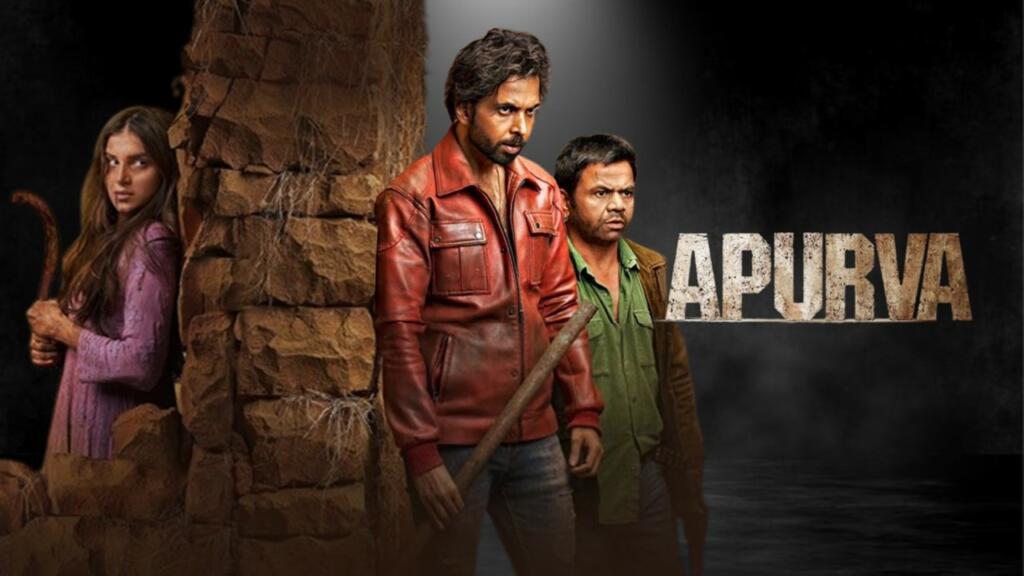In the world of cinematic storytelling, the pursuit of gritty realism often serves as a double-edged sword. Apurva, a Disney+ Hotstar movie, boldly ventures into this territory with ambitions of making a feminist statement while unraveling the harrowing journey of a vulnerable woman confronting a gang of ruthless men. However, as the plot unfolds, Apurva finds itself ensnared in the familiar trappings of predictability and stereotypical characterizations.
Gritty Ambitions and Stereotypical Tropes:
The movie sets its tone with a visceral scene—a gang ruthlessly attacking three men on a desolate Chambal highway. This opening salvo positions Apurva on the edge of being a ‘slasher’ movie, a genre known for its unflinching portrayal of violence. However, the pursuit of gritty realism risks overshadowing the need for a nuanced narrative.
Feminist Aspirations and Stereotypical Characters:
Apurva introduces its titular protagonist, played by Tara Sutaria, as she embarks on a bus journey to surprise her banker boyfriend in Agra. The encounter with Sukhi, portrayed by Abhishek Banerjee, takes an ominous turn, setting the stage for the movie’s feminist aspirations. Unfortunately, these ambitions are hindered by the movie’s portrayal of male characters, including Sukhi and Rajpal Yadav, who remain one-dimensional and fail to transcend clichés.
Shallow Character Development:
Flashbacks provide glimpses into Apurva’s life and her engagement with Sid, portrayed by Dhairya Karwa. While these scenes aim to build the characters and their love story, the sweetness portrayed on screen doesn’t translate into a palpable chemistry between the leads. This lack of connection weakens the emotional resonance with the audience, hindering the movie’s ability to evoke genuine empathy for the titular protagonist.
Also Read: The Cinematic Charisma of Milla Jovovich: 10 Must Watch Films
Deserted Villages and Predictable Plots:
As the cat-and-mouse chase unfolds, Apurva and her captors move to a deserted village, attempting to inject a sense of eeriness and tension. Despite some gripping and tense moments, the narrative is hampered by predictability. The movie struggles to break free from conventional plotlines, diminishing the impact of potentially intense scenes.
Underdeveloped Antagonists and Societal Commentary:
The four gangsters, each intended to be distinct in terms of age, personality, and background, fall prey to the script’s neglect. These characters remain superficial, serving more as caricatures than fully fleshed-out entities. While the movie touches on societal issues such as the recording of sexual abuse incidents, it falls short of delivering a substantial commentary on the underlying themes of social conditioning, misogynistic mindsets, or warped masculinity.
Tara Sutaria’s Performance:
Tara Sutaria shoulders the weight of the movie, especially in action sequences that showcase her physical prowess. However, her portrayal falters when it comes to the demands of intense emotional scenes. This performance gap underscores a broader issue in the movie’s emotional depth, revealing a disconnection between the character and the audience.
Comparisons with NH10:
Drawing inevitable comparisons with NH10, a film that deftly navigated the theme of honor killings with Anushka Sharma in the lead, Apurva falls short of delivering comparable layers and nuances. While NH10 provoked thoughtful reflection, Apurva settles for shocking moments without weaving a tapestry of profound contemplation.
In its pursuit of gritty realism and feminist storytelling, Apurva grapples with the challenges of predictability, stereotypical characterizations, and a lack of emotional depth. Tara Sutaria’s commendable efforts in action sequences stand in contrast to the movie’s struggles to establish a genuine connection between characters and the audience. While it shocks in parts, Apurva ultimately misses the mark in leaving a lasting impression or prompting meaningful contemplation, representing a missed opportunity for a more impactful cinematic experience.
